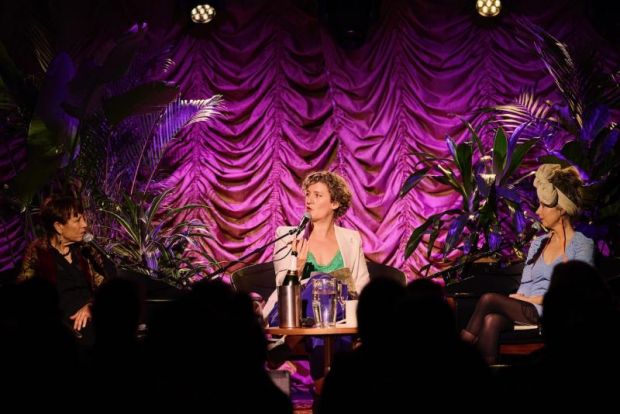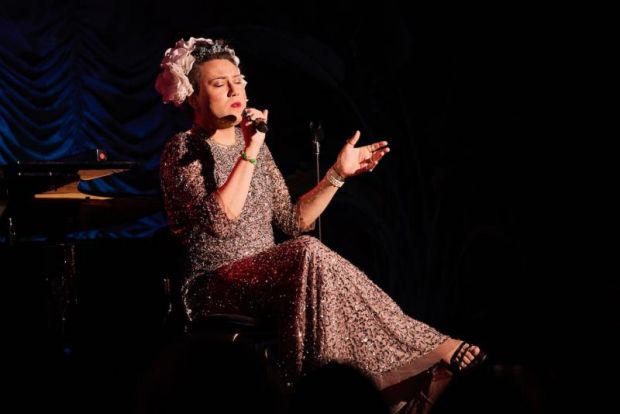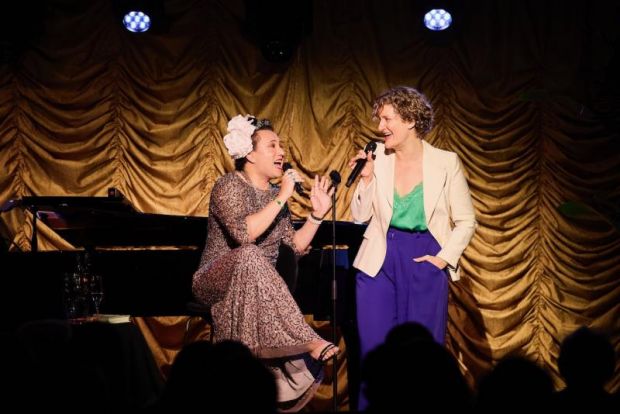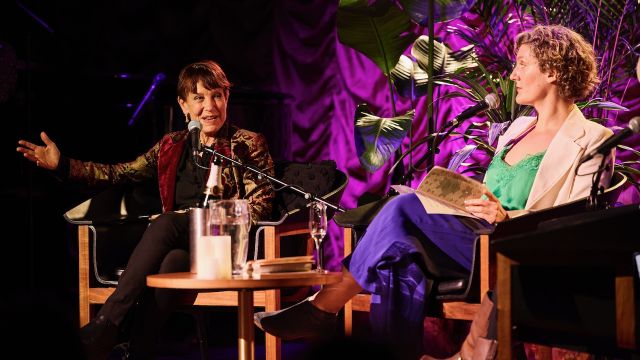Between the Covers
The Great Gatsby was written by F. Scott Fitzgerald and published to initially lukewarm reception in 1925 – eventually finding its place as a contender for the ‘Great American Novel’ after World War II, and today, still receives considerable attention from scholars of all ages.
The story is narrated by Nick, a man trying to make his way in 1922 New York, renting a house adjacent to ‘new money’ socialite Jay Gatsby – a popular host of wild parties, who is trying to rekindle a long-lost relationship with a woman now married to another man.

The ABC Radio show ‘The Book Club’, which ran from 2006 to 2017, discussed a different novel each week, and resurrected for this year’s Cabaret Festival, this format has been transformed for the stage to talk about The Great Gatsby. What is familiar is the conversation between original presenters Jennifer Byrne and Marieke Hardy, though expanded to include Festival Director, Virginia Gay. What lifts this way above a conversation is peppering the debate with the musical talents of Mama Alto and their supporting two-piece band.
Opening with Peggy Lee’s ‘Ain’t We Got Fun’ – the song explicitly mentioned in Fitzgerald’s novel – Mama Alto’s voice sets the scene and time for a discussion about the 1920s America Dream, and its perversion by those with money. The threesome on the couch: Byrne, Hardy, and Gay, ask the audience who has brought their copy with them; who has read it – only a few hands remain down. Most have studied it in school – only a few admit to revisiting it since, at least in book form.
The discussion alternates between the brilliance of the writing and the awfulness of its characters (and sometimes, its author too!) and the three converse well across the academic, social, and literary aspects of the book – they don’t always share the same perspectives, but collectively, there’s a great balance between the three. For Gay, it made her realise she wanted to be a writer; Hardy remembers that despite her high school study of it, the magic wasn’t beaten out of it like it was for so many novels at school.

More music from Mama Alto and the band frame discussions on appalling behaviour by the upper classes (Fats Waller’s ‘Ain’t Misbehavin’) and the blatant sexism and misogyny throughout the narrative (Gershwin’s ‘The Man I Love’). It’s these themes that garner significant attention – a reminder that whilst there is (implied) sex and violence throughout, every woman is described awfully; and always as yearning for love, wealth, security – or just inclusion.
What’s great about this format – and its relatively unrehearsed and unprepared journey – is that the panel can take a right turn in their conversation; the asides and diversions are just as fascinating as talking about the book itself (the best example being an introduction on how/if we can separate the art from the artist, when the latter has been awful to other people).
Returning to the book – ‘a big story, elegantly told’ says Hardy – the excitement in its writing is more than academic: it’s how we are drawn in by the alluring writing before we are disgusted by the characters’ unadulterated greed.

There is debate about the novel’s translations to other art-forms: the movies - with Farrow and Redford; and the spectacle from Baz Luhrmann; if we hadn’t run out of time, maybe we could have discussed its inclusion in the Cabaret Festival – but Mama Alto has one more song for us before we go: the hundred-year-old ‘Tea for Two’.
Once again, the Adelaide Cabaret Festival provides different experiences and perspectives of performing arts, to a packed Banquet Room eager to be educated and entertained – though it didn’t feel crowded. As Fitzgerald himself wrote in this novel: ‘I like large parties. They’re so intimate’.
Review by Mark Wickett
Photographer: Claudio Raschella
Subscribe to our E-Newsletter, buy our latest print edition or find a Performing Arts book at Book Nook.

